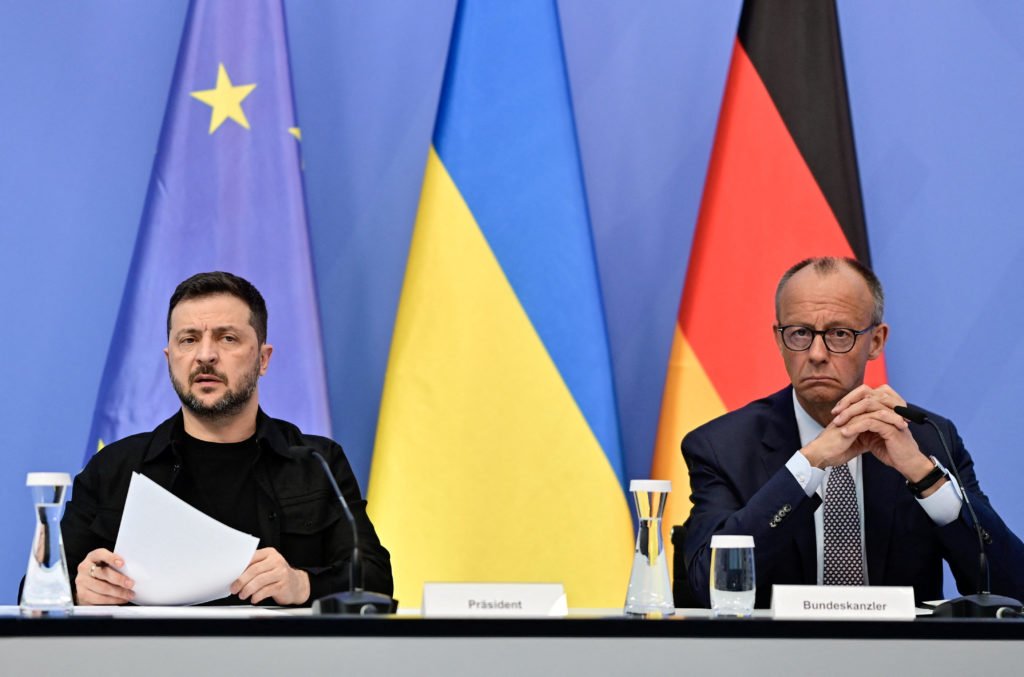Ukrainian President Volodymyr Zelenskyy traveled to Berlin this week for high-level talks with European leaders and U.S. President Donald Trump, just days before Trump is scheduled to meet Russian President Vladimir Putin in Alaska.
The virtual summit in Berlin brought together leaders from Germany, the United Kingdom, Italy, Finland, and Poland, alongside European Commission President Ursula von der Leyen and NATO Secretary General Jens Stoltenberg. Discussions focused on reinforcing European support for Ukraine and emphasizing the importance of Kyiv’s involvement in any peace negotiations. Zelenskyy stressed that Ukraine would not compromise on its sovereignty or territorial integrity, while warning of the risks posed by any unilateral agreements between the U.S. and Russia.
The Berlin summit appears to be a strategic effort to influence Trump’s stance ahead of the historic Alaska talks. Observers note that this preemptive engagement signals Kyiv’s determination to remain at the center of any negotiations regarding its future. European leaders underscored the need for a unified approach and for Ukraine to be included in all major discussions concerning its territory and security.
Also Read; Trump Eases Rocket Launch Rules, Boosts Space Industry
Ahead of the Alaska summit, Trump indicated a willingness to pursue a trilateral discussion including Zelenskyy, Putin, and himself. While the specifics of the Alaska agenda remain undisclosed, experts suggest that the talks could involve potential ceasefires, territorial issues, and broader security guarantees. The international community continues to watch closely, hoping that the series of meetings may lay the groundwork for de-escalation and eventual peace in the region.
European unity remains central to the discussions. British Prime Minister Keir Starmer, who met Zelenskyy in London shortly before the Berlin talks, reaffirmed Europe’s commitment to Ukraine and emphasized that any resolution must respect Ukraine’s consent. The coordinated diplomatic efforts highlight the intersection of strategy, regional security, and humanitarian concerns as the leaders seek solutions to the ongoing conflict.







